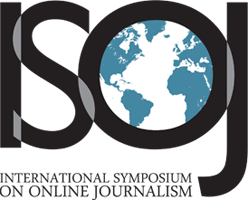April 9, 2005 | Blogs
Blogs: Cheerleading or a Democratic Force?
 The influence of bloggers in exposing the flawed story about the military service of George W. Bush raised questions about the power of this media in relation to mainstream news organizations. Bloggers made CBS News retract its story, and the episode ultimately led to Dan Rather’s resignation. Was this combined with a few more publicized stories an isolated case, or are we witnessing signs of new hope for the power of citizens’ media?
The influence of bloggers in exposing the flawed story about the military service of George W. Bush raised questions about the power of this media in relation to mainstream news organizations. Bloggers made CBS News retract its story, and the episode ultimately led to Dan Rather’s resignation. Was this combined with a few more publicized stories an isolated case, or are we witnessing signs of new hope for the power of citizens’ media?
According to Richard Stevens, assistant professor at Southern Methodist University, bloggers are not as powerful as they like to claim. He illustrated his point through a content analysis of The New York Times coverage of blogs after the CBS story.
Stevens found an increase in the number of stories in the Times that used blog terminology, profied particular blogs, and cited them as sources. However, he said, “it was not really that much, and it also had to do with the context of presidential elections.”
“Bloggers are cheerleading for themselves,” added Nikihl Moro, assistant professor in Kennesaw University. “They do mostly commentary and don’t have journalistic accuracy.”
But the bloggers had a true representative in that panel of the International Symposium on Online Journalism at UT. Lou Rutigliano, the creator of the blog Unknown City, argued that community weblogs are a democratizing force that seeks broad public participation, encourages conversation, and gives audience an active role.
With John Dewey’s doctrine on his side, Rutigliano highlighted the importance of public forums and media that is driven by citizens, as well as by institutions. “A passive audience means a weak democracy,” Rutigliano concluded, quoting Dewey.
ISOJ 2005: Discussing the News, from Knight Center on Vimeo.

